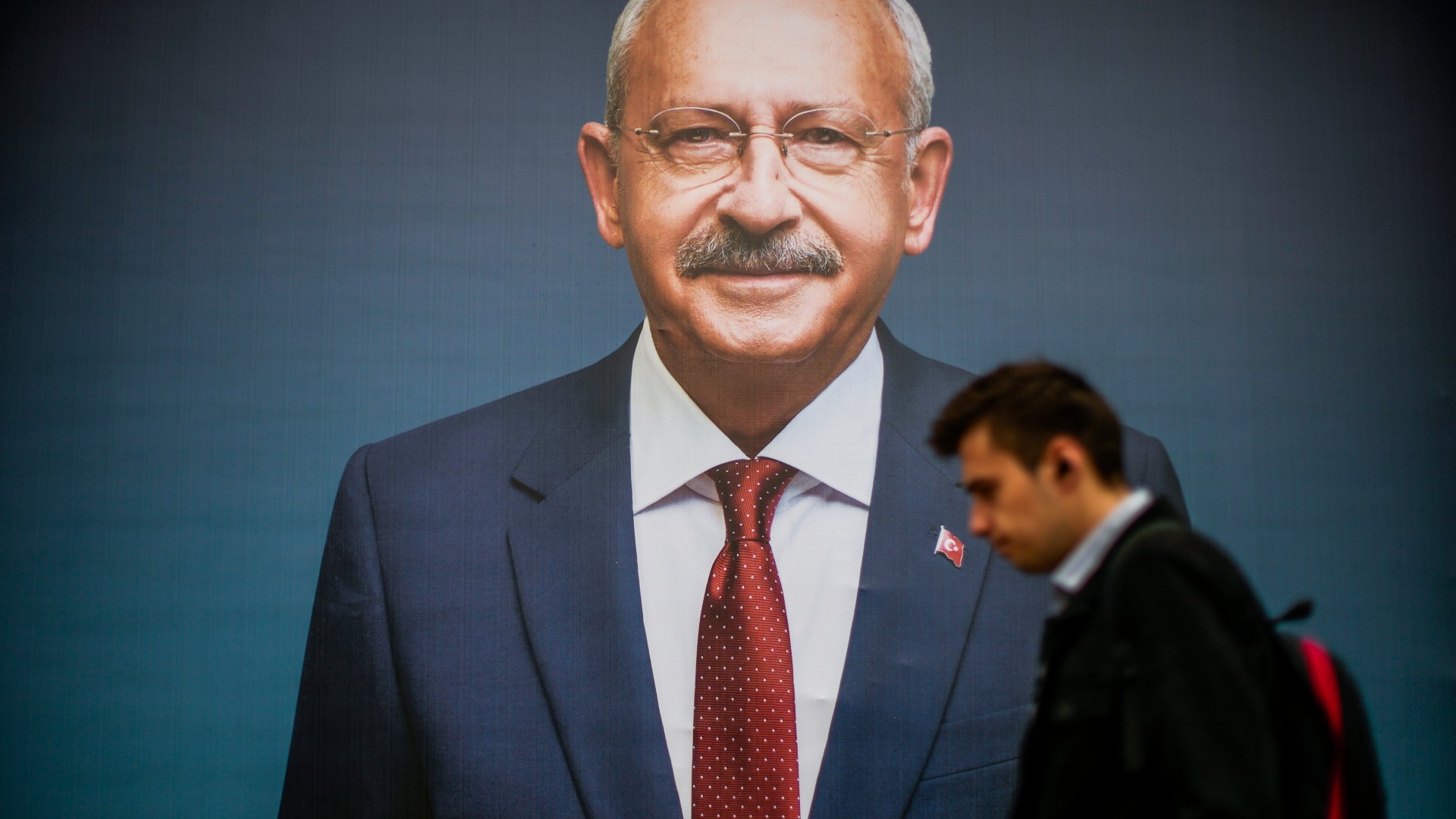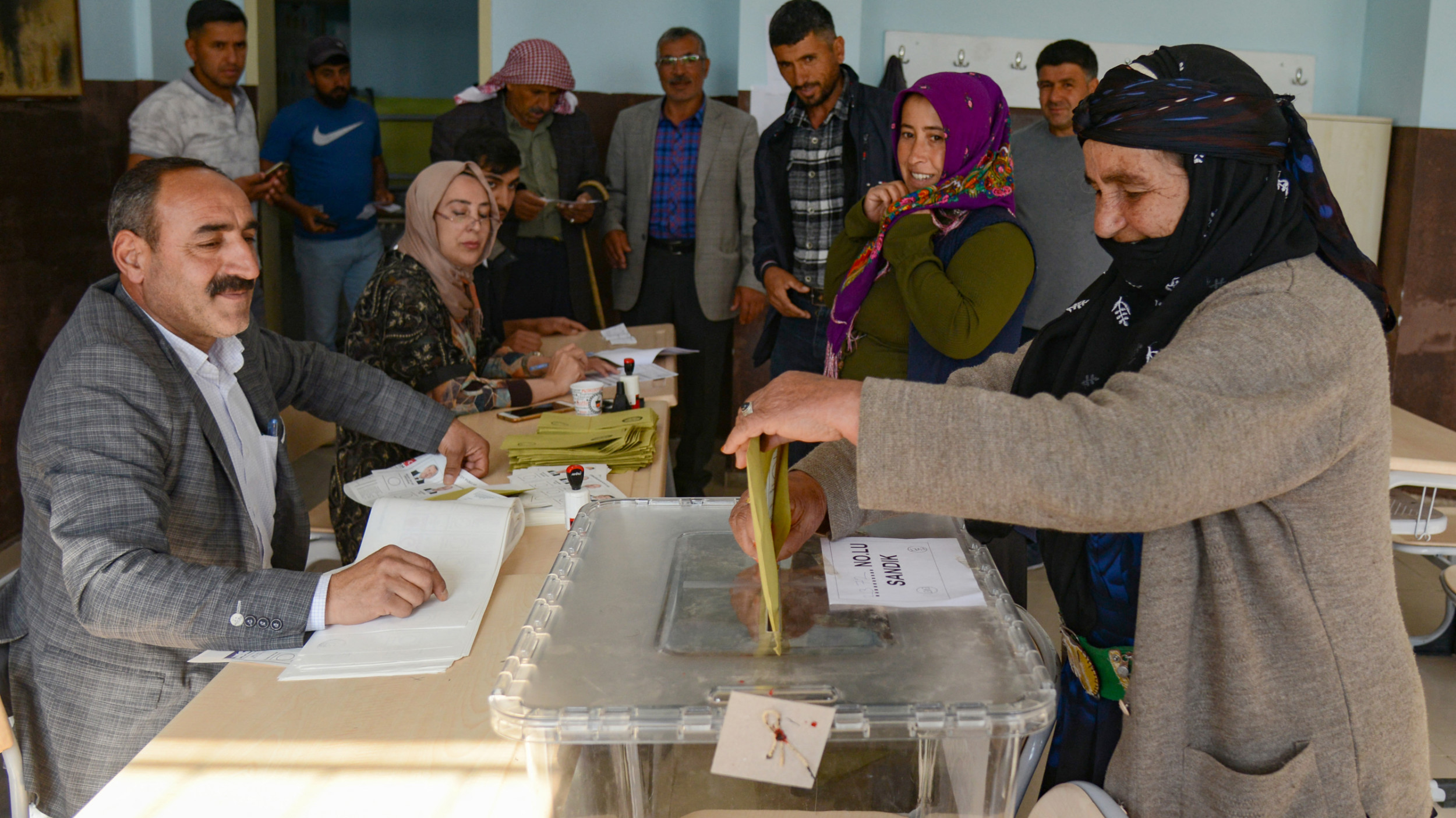High turnout among Kurdish voters who could decide outcome

Turkey's Kurdish-majority provinces might play an essential role in the election's outcome.
In Diyarbakir, which is at the heart of the Kurdish voter base, an MEE correspondent said the turnout rate this morning has been very high.
Around 1.1 million registered voters live in the southeastern city.
The increasing nationalist discourse by the current government, along with economic setbacks, have considerably reduced support for President Recep Tayyip Erdogan there.
Meanwhile, the popularity of Kemal Kilicdaroglu, the main opposition candidate and chair of the Republican People’s Party (CHP), increased - which will likely be reflected in the ballot box.
"I abandoned the party I voted for years," Ayse Turan, a private sector employee, told MEE after she cast her ballot in Diyarbakir.
"The important thing for us is that no one steals or seizes any of our rights any more," she added, without saying who she voted for.
For many years, the Kurdish votes in southeast Turkey were divided between the pro-Kurdish Peoples' Democracy Party (HDP) and Erdogan's Justice and Development Party (AKP).
However, the CHP, which wants to take advantage of the excitement that Kilicdaroglu has created among Kurdish voters in his campaign, wants to be in the equation in this election.
In Diyarbakir, the HDP won nine deputies in the 2018 general elections while the AKP held three seats.
One of the early morning voters, Mustafa Arslan, said he voted for Kilicdaroglu.
At first, the 41-year-old was undecided while heading to the polling station. When he entered the voting booth, he found himself choosing Kilicdaroglu.
"I decided at the last moment," he told MEE. "The reason was that I didn't want Erdogan any more. He has been in power for 20 years.
"This time I gave my vote to Kilicdaroglu for a change."


